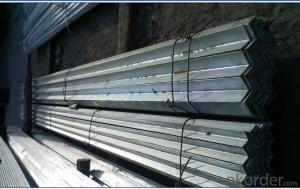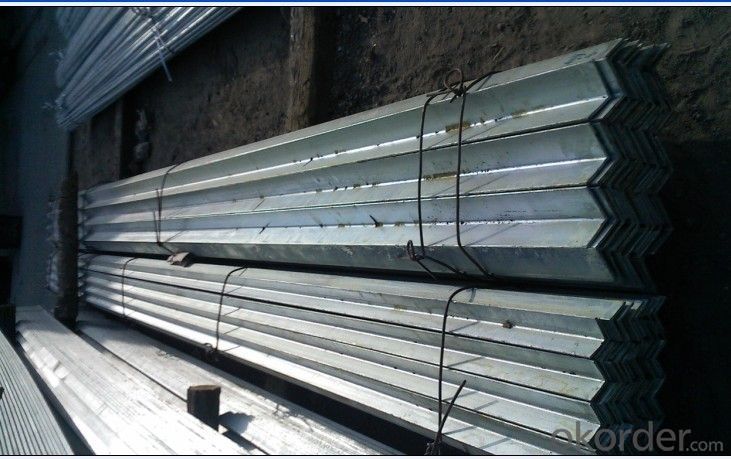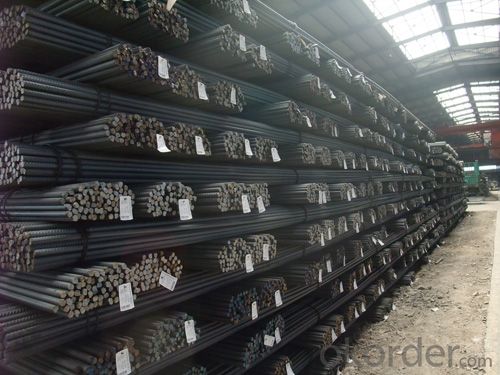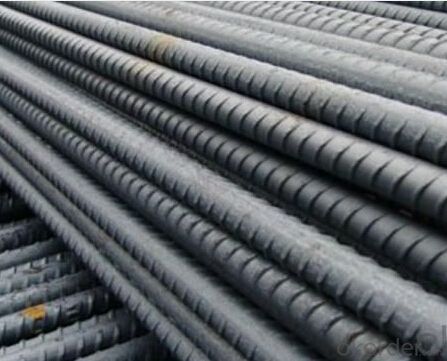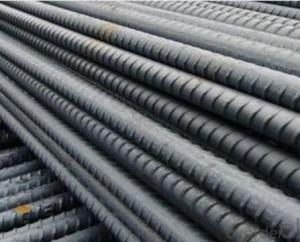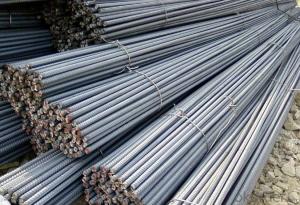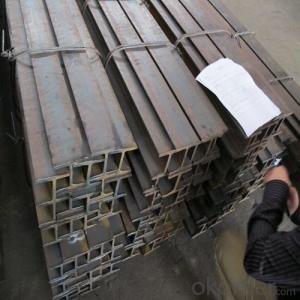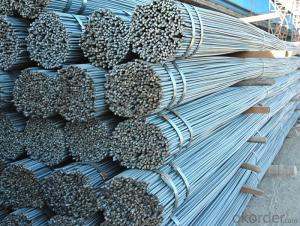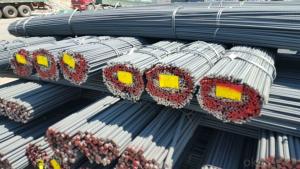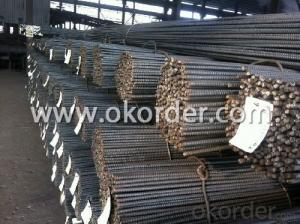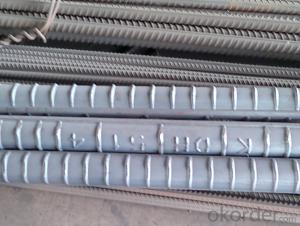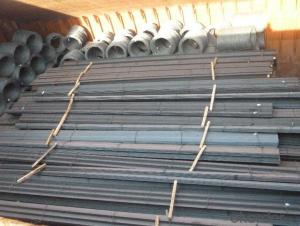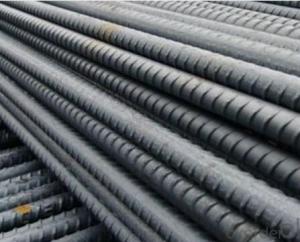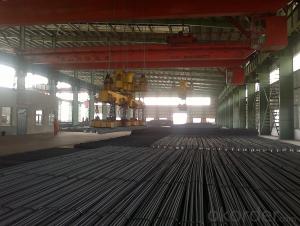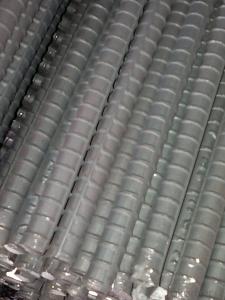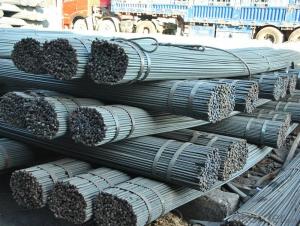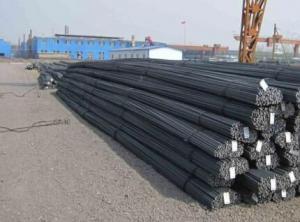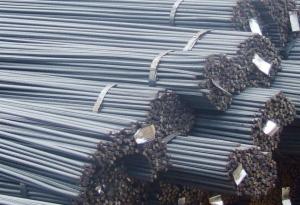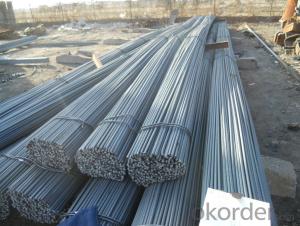BS STANDARD HIGH QUALITY HOT ROLLED REBAR
- Loading Port:
- Tianjin
- Payment Terms:
- TT OR LC
- Min Order Qty:
- 50 m.t.
- Supply Capability:
- 100000 m.t./month
OKorder Service Pledge
OKorder Financial Service
You Might Also Like
Product Description:
Appearance: Black
Technique: Slitting hot rolled steel coil
Grade: Q235, Q195,A36 SS400 S235jr.St37-2
Standard: AISI,GB,DIN,ASTM,EN,JIS
Length: 6m, 9m, 12m or as your requirement.
Width: 10mm-1010mm
Thickness: 1.5mm-20mm
Business type: big manufacture
Place of origin: Tianjin China (Mainland)
Packaging Details: In bundles for exporting and sea worthy
Delivery Detail: Within 15-35 days after receiving L/C or deposite T/T
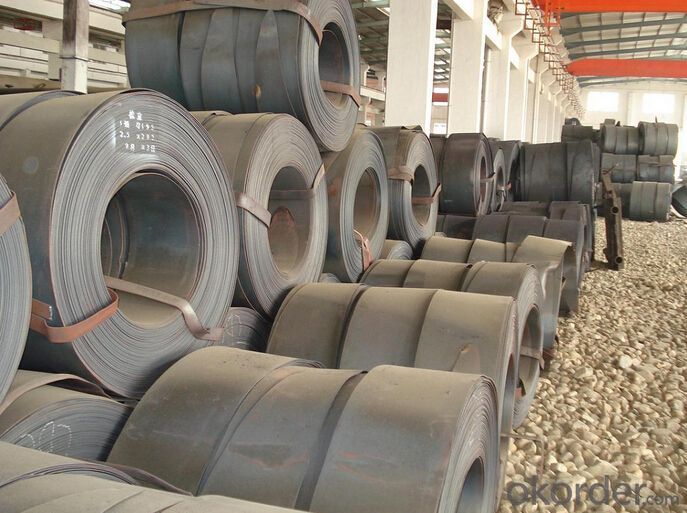
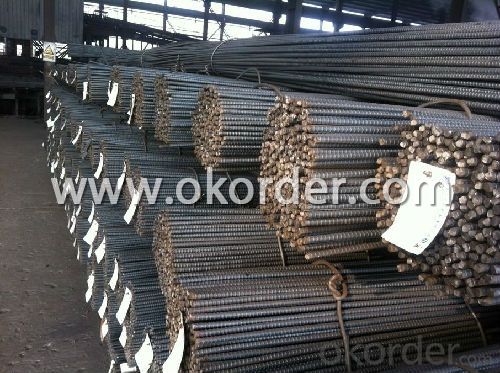
General specification as below:
Flat Bar Specification | |||
Width (mm) | Thickness (mm) | Length (m) | Theoretical Weight (kg/m) |
20 | 2.0 | 6/9/12 | 0.31 |
20 | 2.5 | 6/9/12 | 0.39 |
20 | 2.75 | 6/9/12 | 0.43 |
25 | 2.5 | 6/9/12 | 0.49 |
25 | 3.75 | 6/9/12 | 0.74 |
30 | 2.5 | 6/9/12 | 0.59 |
30 | 3.5 | 6/9/12 | 0.82 |
30 | 9.75 | 6/9/12 | 2.30 |
40 | 3.5 | 6/9/12 | 1.10 |
40 | 4.75 | 6/9/12 | 1.50 |
40 | 11.75 | 6/9/12 | 3.69 |
50 | 2.75 | 6/9/12 | 1.08 |
50 | 4.5 | 6/9/12 | 1.77 |
50 | 9.75 | 6/9/12 | 3.83 |
60 | 5.5 | 6/9/12 | 2.60 |
60 | 7.5 | 6/9/12 | 3.53 |
60 | 11.5 | 6/9/12 | 5.42 |
80 | 5.5 | 6/9/12 | 3.45 |
80 | 7.5 | 6/9/12 | 4.71 |
80 | 11.75 | 6/9/12 | 7.38 |
100 | 3.25 | 6/9/12 | 2.55 |
100 | 4.75 | 6/9/12 | 3.73 |
100 | 7.5 | 6/9/12 | 5.89 |
120 | 9.75 | 6/9/12 | 9.18 |
120 | 11.75 | 6/9/12 | 11.07 |
150 | 9.75 | 6/9/12 | 11.48 |
150 | 11.5 | 6/9/12 | 13.54 |
150 | 13.5 | 6/9/12 | 15.90 |
160 | 11.75 | 6/9/12 | 14.76 |
200 | 9.5 | 6/9/12 | 14.92 |
250 | 5.75 | 6/9/12 | 11.28 |
340 | 7.75 | 6/9/12 | 20.68 |
Products Advantages
1. high quality competitive price and Accurate in size
2. high dimensional accuracy
3. Guaranteed raw material
4.high utilization rate of material
5.convenient in construction, saving much time and labor
6. high mechanical strength
Application: Widely used for construction, Ship building, Machinery manufacturing ,steel structure,agriculture and steel grating.
- Q: What is the role of steel rebars in preventing cracks in concrete?
- The role of steel rebars in preventing cracks in concrete is to provide reinforcement and strength to the concrete structure. By adding steel rebars to the concrete during construction, they help distribute the tensile forces and resist the formation of cracks. The rebars act as a framework within the concrete, absorbing and transferring the applied loads, thereby preventing the concrete from cracking under excessive stress. Additionally, steel rebars also enhance the overall durability, stability, and structural integrity of the concrete, ensuring its longevity and resistance to various external factors.
- Q: Are steel rebars easy to work with?
- Steel rebars can be challenging to work with due to their weight and rigidity, but with proper tools and techniques, they can be effectively manipulated and integrated into construction projects.
- Q: Can steel rebars be used in reinforced masonry structures?
- Reinforced masonry structures can indeed utilize steel rebars to strengthen and provide structural integrity. These rebars, known as reinforcement bars, are commonly employed to fortify masonry elements such as walls, columns, and beams. They are inserted into the masonry units and then embedded in mortar or grout, establishing a robust connection between the steel and the masonry. The utilization of steel rebars in reinforced masonry structures presents various benefits. Firstly, it amplifies the load-bearing capacity of the structure, enabling it to withstand heavier loads and resist deformation. This is particularly crucial in regions susceptible to seismic activity or strong wind loads. Secondly, the steel rebars facilitate the even distribution of stress throughout the structure, averting localized failures and enhancing overall durability. Additionally, employing rebars can enhance the crack resistance of masonry, diminishing the risk of cracks and augmenting structural performance. It is important to note that the design and installation of steel rebars in reinforced masonry structures must adhere to specific codes and standards to ensure adequate safety and performance. The size, spacing, and placement of the rebars are determined based on structural calculations and engineering principles. Sufficient masonry coverage around the rebars is also vital to prevent corrosion and maintain long-term structural integrity. In conclusion, steel rebars are certainly suitable for enhancing the strength, load-bearing capacity, and durability of reinforced masonry structures. Proper design, installation, and adherence to building codes are essential to ensure the successful integration of rebars with masonry.
- Q: Difference between round bar and threaded steel in use
- The rebar is much higher than the ordinary, and the low carbon steel rounds are much higher. The heat treated steel is much stronger than the low carbon round steel, nearly twice or even higher.
- Q: How are steel rebars used in slab construction?
- Steel rebars are commonly used in slab construction to reinforce and strengthen concrete slabs. They are placed within the concrete before it is poured, forming a grid-like structure that provides added support to the slab. This helps to prevent cracking and structural failure, as the rebars help distribute the load and resist tension forces.
- Q: Can steel rebars be used in combination with other reinforcement materials?
- Combining steel rebars with other reinforcement materials is a common practice in construction projects. Steel rebars provide tensile strength and improve overall structural integrity in reinforced concrete structures. However, additional reinforcement materials may be needed in certain cases to meet design requirements or overcome unique construction challenges. For example, in areas with high seismic activity, it is important to prioritize flexibility and ductility. In these situations, steel rebars can be combined with materials like fiber-reinforced polymer (FRP) bars or carbon fiber-reinforced polymer (CFRP) strips. These materials offer increased strength and flexibility, enhancing the structure's ability to withstand seismic forces. Furthermore, when corrosion is a concern, steel rebars can be used alongside corrosion-resistant materials such as stainless steel rebars or epoxy-coated rebars. These materials form a protective barrier, preventing direct contact between the steel rebars and moisture or corrosive agents. Moreover, in specialized applications like precast concrete elements or composite structures, steel rebars can be used in conjunction with other reinforcement materials like prestressed tendons or structural fibers. This combination allows for load redistribution and ensures optimal structural performance. In conclusion, combining steel rebars with other reinforcement materials is an effective way to meet specific construction requirements, improve structural performance, and address challenges related to seismic activity, corrosion, or specialized applications.
- Q: How do steel rebars affect the overall construction cost of industrial buildings?
- Steel rebars can have a significant impact on the overall construction cost of industrial buildings. Rebars are used as reinforcement in concrete structures, providing strength and durability. The amount of steel rebars required in a building project directly affects the cost, as the price of steel is a major component of the overall construction expenses. Firstly, the quantity of rebars needed depends on the size, design, and complexity of the industrial building. Larger buildings or those with intricate architectural features may require a higher number of rebars, resulting in increased costs. Additionally, the design and engineering requirements for seismic or wind resistance can also influence the quantity of rebars, further impacting the construction budget. Moreover, the quality and grade of the steel rebars used can affect the cost. Higher-grade rebars, such as those with higher tensile strength or corrosion resistance, may be more expensive. However, using higher-grade rebars can provide long-term benefits by enhancing the structural integrity of the building and reducing maintenance and repair costs over its lifespan. Transportation and handling costs also contribute to the overall cost. Steel rebars are heavy and bulky, requiring careful handling and transportation to the construction site. The distance between the steel supplier and the site can significantly impact transportation costs. Additionally, the storage and protection of rebars on-site must be considered to ensure their quality, which may involve additional expenses. Lastly, labor costs associated with the installation of steel rebars should be taken into account. Skilled labor is required to correctly place and tie the rebars according to design specifications and building codes. The complexity of the reinforcement design can affect the time required for installation, ultimately influencing labor costs. In conclusion, steel rebars play a vital role in the construction of industrial buildings by reinforcing concrete structures. The quantity, quality, transportation, and labor costs associated with steel rebars directly impact the overall construction cost. Therefore, careful planning and consideration of these factors are necessary to effectively manage the budget of industrial building projects.
- Q: What is the difference between mild steel rebars and high-strength steel rebars?
- Mild steel rebars and high-strength steel rebars are two different types of reinforcement bars used in construction. The key difference between these two lies in their composition and mechanical properties. Mild steel rebars, also known as low carbon steel rebars, are made from steel with a relatively low carbon content. Typically, they have a carbon content of about 0.15% to 0.30%. These rebars are commonly used in general construction projects where the concrete structure does not require high tensile strength. Mild steel rebars have a relatively lower yield strength and ultimate tensile strength compared to high-strength steel rebars. On the other hand, high-strength steel rebars, also known as high tensile strength rebars or HSD bars, are made from steel with a higher carbon content, typically ranging from 0.40% to 0.60%. These rebars are specially designed to provide superior strength, durability, and load-bearing capacity. High-strength steel rebars have a significantly higher yield strength and ultimate tensile strength compared to mild steel rebars. This makes them suitable for use in critical structures that require a high load-bearing capacity, such as bridges, high-rise buildings, and industrial structures. Another important difference between mild steel rebars and high-strength steel rebars is their ductility. Mild steel rebars have better ductility, meaning they can undergo more deformation before failing. This property allows mild steel rebars to absorb more energy during an earthquake or other dynamic loads, making them suitable for seismic zones. High-strength steel rebars, on the other hand, have lower ductility but higher stiffness and strength, making them more resistant to extreme loads and providing better structural integrity. It is important to note that while high-strength steel rebars offer superior strength and load-bearing capacity, they are also more expensive compared to mild steel rebars. Therefore, the choice between these two types of rebars depends on the specific requirements of the construction project, including the structural design, load conditions, and budget constraints.
- Q: Can steel rebars be used in wind turbine tower construction?
- Yes, steel rebars can be used in wind turbine tower construction. Rebars provide strength and structural support to the tower, ensuring its stability and ability to withstand strong winds.
- Q: Can steel rebars be used in combination with other reinforcement materials?
- Combining steel rebars with other reinforcement materials is a common practice in construction projects. Steel rebars provide tensile strength and improve overall structural integrity in reinforced concrete structures. However, additional reinforcement materials may be needed in certain cases to meet design requirements or overcome unique construction challenges. For example, in areas with high seismic activity, it is important to prioritize flexibility and ductility. In these situations, steel rebars can be combined with materials like fiber-reinforced polymer (FRP) bars or carbon fiber-reinforced polymer (CFRP) strips. These materials offer increased strength and flexibility, enhancing the structure's ability to withstand seismic forces. Furthermore, when corrosion is a concern, steel rebars can be used alongside corrosion-resistant materials such as stainless steel rebars or epoxy-coated rebars. These materials form a protective barrier, preventing direct contact between the steel rebars and moisture or corrosive agents. Moreover, in specialized applications like precast concrete elements or composite structures, steel rebars can be used in conjunction with other reinforcement materials like prestressed tendons or structural fibers. This combination allows for load redistribution and ensures optimal structural performance. In conclusion, combining steel rebars with other reinforcement materials is an effective way to meet specific construction requirements, improve structural performance, and address challenges related to seismic activity, corrosion, or specialized applications.
Send your message to us
BS STANDARD HIGH QUALITY HOT ROLLED REBAR
- Loading Port:
- Tianjin
- Payment Terms:
- TT OR LC
- Min Order Qty:
- 50 m.t.
- Supply Capability:
- 100000 m.t./month
OKorder Service Pledge
OKorder Financial Service
Similar products
Hot products
Hot Searches
Related keywords
